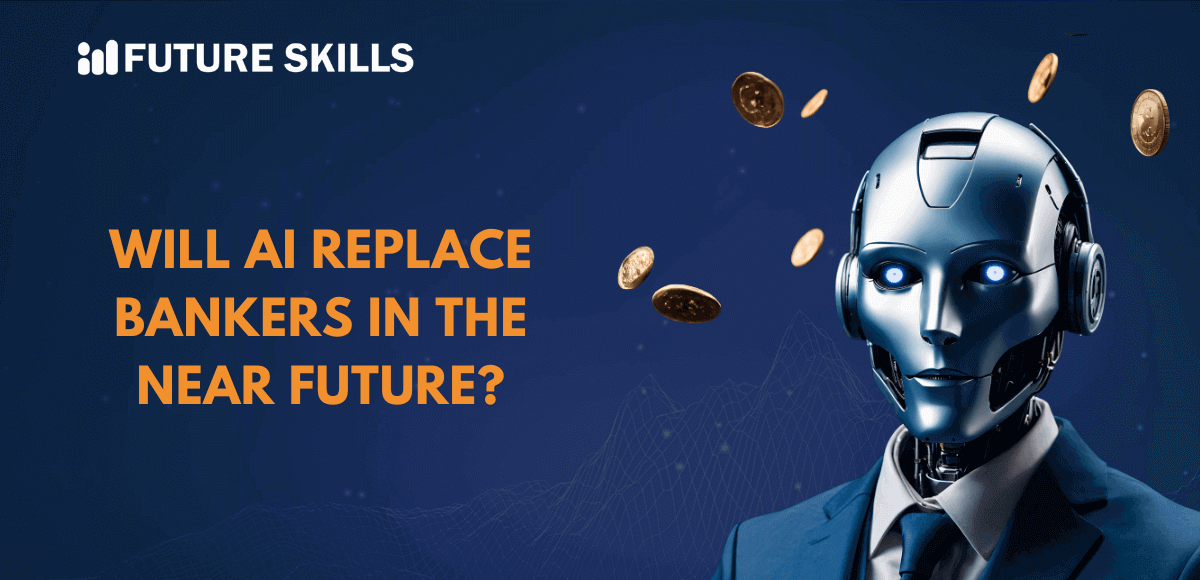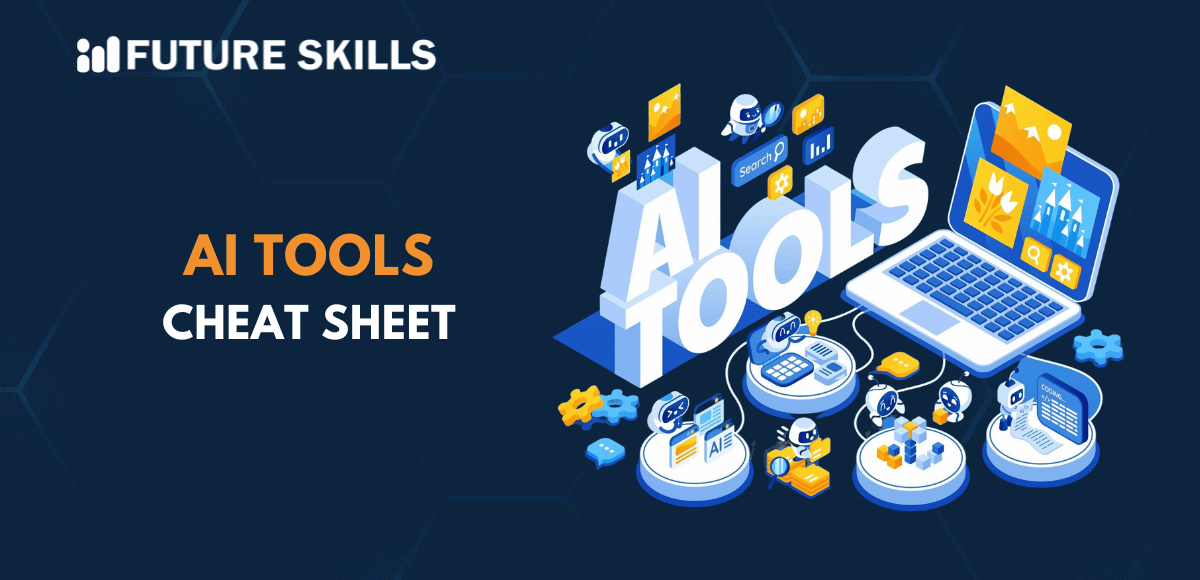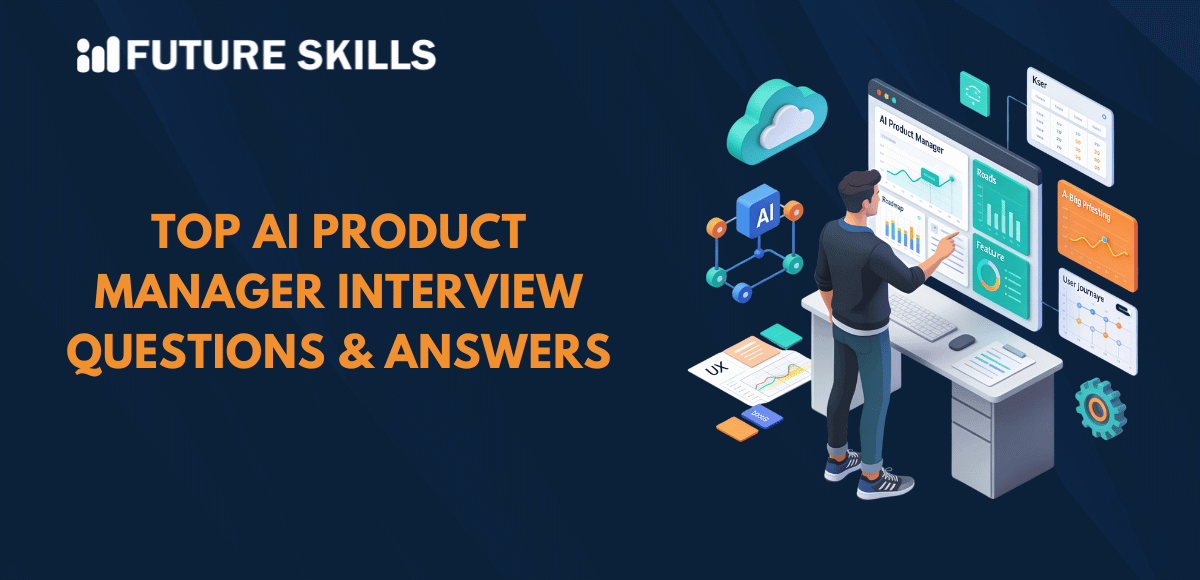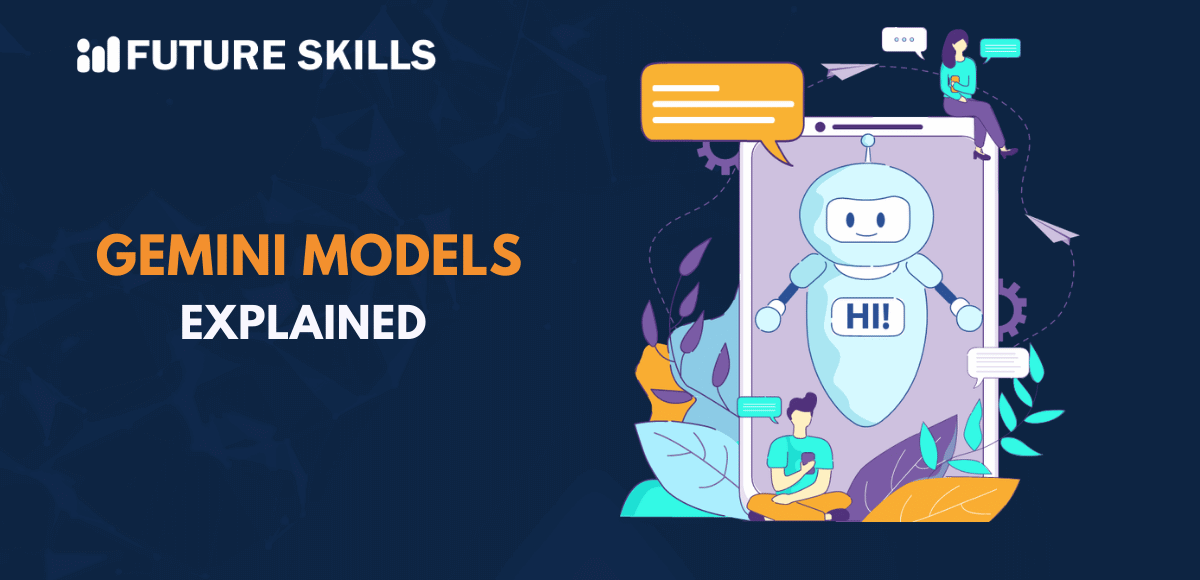In the past few years, Artificial Intelligence has emerged as a transformative power in a diverse range of areas. A specific field that has undergone radical change thanks to the adoption of Artificial Intelligence technology is finance and banking. In the year 2024, approximately 70 % of financial services entities reported a surge in their AI-driven revenue.
The rising adoption of AI in the finance sector has given rise to an important question: ‘Will bankers get replaced by AI?’ In order to address the question, it is essential to take into account how AI is being used in the banking realm. Let us explore how the future of finance jobs may undergo a transformation because of Artificial Intelligence.
Level up your AI skills and embark on a journey to build a successful career in AI with our Certified AI Professional (CAIP)™ program.
Rising Adoption of AI in Banking
AI in banking is a reality that one cannot ignore. Within a short period of time, entities operating in the banking and financial services sector have started leveraging AI for diverse purposes. Several banks are integrating Artificial Intelligence to personalize the experiences of their customers. They are also strategically utilizing the novel technology to customize their solutions and drive customer satisfaction.
AI is being used as a strategic force by banking and financial service providers today. By capitalizing on Artificial Intelligence, banking firms are able to identify new opportunities. For instance, the adoption of AI has simplified fraud detection as well as risk management practices for banks. By adopting the capabilities of Artificial Intelligence, automation has reached new heights in the financial realm.
What does it mean for Bankers?
The rising popularity of AI in banking has the potential to impact bankers. A common concern for many bankers right now is – Will bankers get replaced by AI? The straight answer to the question is that AI cannot entirely replace bankers. Bankers perform an array of tasks and operations that AI is still not capable of handling. However, it is essential to remember that specific tasks, which may be repetitive in nature, may be performed by Artificial Intelligence in the future.
Instead of feeling threatened by AI, bankers need to look at it as an opportunity. The strategic use of AI by developing essential skills has the potential to enable bankers and financial professionals to carry out their responsibilities proficiently. For instance, they can learn about data visualization and data analysis to perform fraud detection accurately. AI certainly has the power to influence the future of banking jobs. However, it still depends on bankers and financial professionals whether they stay relevant in the evolving banking landscape or not.
Skills Needed to Thrive in the AI-driven Finance Space
In case you are wondering, can AI replace bankers? You can breathe a sigh of relief since AI cannot entirely eliminate the need for humans. However, it is a must to develop essential AI skills. By developing the top skills, you can strategically leverage AI in finance jobs. In order to stay relevant in the evolving financial services space, the chief skills that bankers must develop are:
-
Data literacy
It is a must for bankers to improve their digital literacy. Apart from having knowledge about financial and banking aspects, it is essential to have an in-depth insight into the fundamentals of AI. This knowledge is indispensable for banking professionals to not only process but also assess data in an effective manner.
-
Predictive analysis
Banking professionals need to have proficiency in the area of predictive analysis. In case you are wondering, can AI replace bankers or not? Having expertise in predictive analysis is a must. The skill can undoubtedly help you make predictions and forecasts in an efficient manner. You can also understand trends that can help you make strategic decisions for your employer.
-
Problem-solving skills
Banking professionals need to develop solid problem-solving skills to leverage Artificial Intelligence. These skills can enable them to use valuable data-driven insights and solve real-world problems. Without the skill, modern bankers may feel handicapped, and they may fail to capitalize on Artificial Intelligence to the fullest.
-
Decision-making skills
Bankers, as well as financial professionals, need to have solid proficiency when it comes to decision-making. These skills can empower them to gain value from data analytics and make important decisions. These skills can serve as an asset for bankers in the long run and help them strengthen their place in the evolving banking landscape.
-
Insight into cybersecurity
An essential AI skill revolves around cybersecurity aspects. Bankers need to expand their knowledge of cybersecurity and ethical practices. Moreover, it is essential to know about the latest cybersecurity threats that arise in the prevailing banking space. The insight can certainly empower bankers to play a constructive role in reducing risks and uncertainties that arise due to the adoption of Artificial Intelligence technology.
Understand how fintech is revolutionizing finance and develop a career with our Fintech Certification Program. Enroll now!
Use Cases of AI in Banking
Bankers need to be aware of how AI is being used in the current banking landscape. The insight can undoubtedly help you understand how you can develop top AI skills to thrive in the dynamic banking realm. Some of the use cases that reflect the rising use of AI in finance jobs are:
-
Fraud detection
Banking firms are leveraging AI technology to detect fraudulent activities. They are able to find suspicious activities in an accurate and efficient manner. This has certainly helped to keep a tab on the actions of malicious customers and online hackers.
-
Document processing
By using the capabilities of Artificial Intelligence, document processing activities have become simplified. Banks are able to extract structured as well as unstructured data in a simplified manner. As a result, practices relating to loan processing have become simplified.
-
Customer support solutions
The ability to promptly respond to the concerns of customers has become simpler thanks to AI. Many banks have introduced AI-powered chatbots or virtual agents to simplify their customer support solutions. It has undoubtedly created an opportunity for firms to boost the satisfaction level of their customers.
The adoption of AI in the banking context is growing with each passing day. At present, the answer to the question – Can AI replace bankers is no. However, bankers need to gear up and develop top AI skills to remain relevant in the evolving banking arena.
Familiarize yourself with the best practices for implementing AI and fintech solutions With AI and Fintech Course.
Final Words
In the prevailing times, Artificial Intelligence has certainly emerged as a revolutionary power in the banking space. However, if you are wondering – Can AI replace bankers, you can rest assured that AI cannot entirely replace humans. However, in order to derive optimum value from AI, banking professionals need to cultivate top AI skills.
Some of the in-demand AI skills that bankers must possess are data literacy, predictive analysis, problem-solving skills, decision-making skills, and insight into cybersecurity. Moreover, it is essential for professionals in the banking setting to familiarize themselves with the use cases of AI in banking. The insight can help them understand how AI is serving as a catalyst and transforming banking practices in the 21st century. Bankers need to adapt themselves so that they can excel in the AI-powered banking space.






